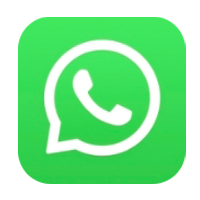IDM-MINI8 PCM Multiservice access equipment FXO/FXS Audio Optical Multiplexer user' manual
Multiservice access equipment
User’ manual
To the user
(1) Thank you for using our equipment. Our equipment is used in design has a good and reliable performance, but still should avoid man-made damage to the equipment. Before using this product, please read this user manual carefully, and properly kept, for reference.
(2) Before installing this product, please check the model, and installed according to the requirements of user manual
(3) Please keep away from raining and damping, in order to avoid damage.
(4) Don't put anything on the power cable, the cable tie or encase. To avoid fire, should be kept where it is not easy to meet.
(5) The power adapter and other equipment shall be connected to each other tightly fitting, please check.
(6) Please note that the equipment clean, if necessary, can use soft cotton cloth to wipe
(7) Please note that don't block ventilation cooling hole
(8) Please don't repair equipment, except there are clear instructions in the manual. When the equipment running abnormal please power off immediately and contact the company's after-sales service.
(9) Our company provides three months replacement to our products, one year free warranty, life-long maintenance services.
Free maintenance service related matters are as follows:
In one year warranty, if used properly and according to the instruction manual and failure occurs under normal use, the company will be responsible for free maintenance; Every open the equipment itself, the company will not be responsible for maintenance; More than warranty period of equipment, our company is responsible for maintenance, appropriate fees.
(10) Caused by the product itself quality problem during the warranty period of the equipment cannot run normally use, the company responsible for replacement, recycling products owned by the company
(11) Man-made damage to the equipment damage, or not in accordance with the manual operation of equipment damage, our company is not responsible.
Contents
2.1. Equipment panel structure
2.2. Equipment front panel introduce
2.3. Equipment rear panel introduce
6. Equipment install and maintain
6.2. Equipment Common troubleshooting
6.3. Equipment business opening
6.3.1 Telephone business opening
6.3.2 . Ethernet business opening
1.1 Product Overview
IDM-MINI8 multiservice multiplex equipment can transmit N*64K data service and 8 channels 64K voice, data service in the fiber or E1 channels
IDM-MINI8 use independent type structure, translate 10/100Base-T Ethernet, V.24/V.35, voice etc into E1 data flow, and transmission in the E1 or fiber channels. Suitable for through the optical fiber, microwave, DDN private network channel to extend the working distance of the interface, such as expanding service scope.
IDM-MINI8 can flexibly configure different business in order to meet user needs, fully embodies the our "all for the sake of users, all for the sake of users," the design concept.
1.2 Main feature
Ø modular structure, low power consumption and reliability.
Ø Can select E1 or fiber transmitting, easy to use.
Ø Adapt to a variety of power supply mode: AC220V/DC-48V or dual Power
Ø Can be used as optical interface converter and optical modem.


2.2 Equipment front panel introduce
|
NO |
LED |
Colour |
remark |
normal working |
|
1 |
POW |
Green |
Power |
on |
|
2 |
TXD |
Green |
Sending data indicator light |
flickering |
|
3 |
RXD |
Green |
Reception data indicator light |
flickering |
|
4 |
RAL |
Green |
Work status indicator |
off |
|
5 |
LALM |
Green |
Work status indicator |
off |
|
6 |
TEST |
Green |
Test enable indicator signal |
Test enable and loopback normal:’ on, loopback not normal: flickering, Test can’t enable: off |
|
7 |
ALM |
Red |
Alarm indicator |
Local alarm: on, Remote alarm: flickering, normal: off |
|
PAT |
Red |
Built-in error test instructions |
Test status: normal : on, Bit Error: off |
|
|
9 |
LOOP |
Green |
self-loop status indicator |
Local loopback: on, Romote loopback: flickering, Normal: off |
|
10 |
OLOF |
Red |
Optical interface step-out indicator |
Local alarm: on, Romotre alarm: flickering, Normal: off |
|
11 |
SDO |
Red |
No light alarm indicator |
|
|
12 |
1E-06 |
Red |
Light line error 1E-6 alarm indicator |
off |
|
13 |
1E-03 |
Red |
Light line error 1E-3 alarm indicator |
off |
|
14 |
LOS |
Red |
E1 Signal disappears alarm indicator |
Local alarm: on, Romotre alarm: flickering, Normal: off |
|
15 |
AIS |
Yellow |
E1 signal AIS alarm indicator |
Local alarm: on, Romotre alarm: flickering, Normal: off |
|
16 |
CRCE |
Red |
E1 interface CRC ECC Error |
Local alarm: on, Romotre alarm: flickering, Normal: off |
|
17 |
LOF |
Red |
E frame step-out alarm indicator |
Local alarm: on, Romotre alarm: flickering, Normal: off |
|
18 |
LED1A~LED4A |
Green |
Business channels indicator |
on |
|
19 |
LED1B~LED4B |
Green |
Business channels indicator |
on |
|
20 |
RESET |
|
system reset button |
|
2.3 Equipment rear panel introduce
|
No |
Name |
Implication |
Remark |
|
1 |
PGND |
-48V Power Protected Area |
-48V power-line terminal |
|
GND |
-48V Power work Area |
||
|
-48V |
-48V Power |
||
|
2 |
~220V |
~220V power |
~220V power-line terminal |
|
3 |
P1~P8 |
User business interface |
Business interface |
|
4 |
NET/V.35 |
Expand Ethernet /V35 business interface |
|
|
5 |
TX |
Optical sending interface |
Optical interface |
|
6 |
RX |
Optical reception interface |
|
|
7 |
IN |
E1 input interface |
E1 interface |
|
8 |
OUT |
E1 output interface |
u FXO card is used to User voice signal and ST - BUS motherboard signal transformation
u Subscriber line state signal and digital signal conversion between
u FXO card is mainly used in automatic connection user telephone exchange, such as common battery telephone exchange interface.
u This card support to display and polarity function.

u FXS card is used to feed to the telephone user, Over voltage and over current protection; When called to the user to send fluid flow; Monitoring the user to pick a hook state;
u FXS Can be used for automatic telephone billing, common battery telephone, telephone remote phone interface.
u Support “Caller ID Display”

u EM2/4 line is used to User voice signal and ST - BUS motherboard signal transformation, Audio by 2/4 line state set.
u Sending and receiving gain Settings; The EM signal line state signal and digital signal conversion between; And provide identification and status information to network management;
u This card is mainly used for 2 line, 4 line audio or carrier signal transmission, and 2100 hz magnetic relay forwarding; Line status signal to digital signal conversion between; Can also be used in a E&M signaling relay interface connections between switches. Also cooperate with FXO card use in some places, to complete the function of the specific Hz magnetic relay forwarding;
u One EM2/4 card can provide 1 channels EM2/4 signal
u The card 2 or 4 line works can be set according to the needs of users in a factory
u When EM2/4 card send signal when the end to end, panel lights on the corresponding state.
u EM2/4 lines each card have 1 channel, the interface by the corresponding to the slot number x 2-1. For example: the card insert 8th slots, corresponding interface is 8*2-1=15, P1


EM card Testing:
1. RJ45 port line 8 is GND, Line 7 is M wire output, Line 2 is E wire input.
2. Center site device RJ45 port line 2 connect line 8(GND), Trigger E line state, The LED1A of center site is on, the LED1B of remote site is also on.
The voltage between line 7 and line 8 of the remote site device RJ45 port from -48V to 0V, EM is OK.
u 2/4 line audio card is used to User voice signal and ST - BUS motherboard signal transformation, Audio by 2/4 line state set. Sending and receiving gain Settings.
u This card is mainly used for 2 line, 4 line audio or carrier signal transmission, and 2100 hz magnetic relay forwarding;
u The card 2 or 4 line works can be set according to the needs of users in a factory


u Hotline telephone card is used to User voice signal and ST - BUS motherboard signal transformation, Audio by 2/4 line state set, feed to the telephone user, Over voltage and over current protection; When called to the user to send fluid flow; Monitoring the user to pick a hook state; Subscriber line state signal and digital signal code conversion between; Insert the signal generation and signal control; provide identification and status information to network management.
u Hotline telephone card is used for between important department or leadership calling directly without telephone switch. Should be used in pair both ends.
u One hotline telephone card provide 2 channels hotline telephone. One interface provide 1 channel, P1-P8 each port provide 1 channel.
u When the end pick machine or to end ringing, equipment panel lights on the corresponding state.
u Magnetic card mainly complete: user voice signal and ST - BUS motherboard signal transformation; Digital signal and the conversion between line state; And provide identification and status information to network management.
u This card can be used as a magnet, magnet switch between, between telephone and the connection between the two interfaces.
u One magnet telephone card provide 2 channels hotline telephone. One interface provide 1 channel, P1-P8 each port provide 1 channel.
u When ringing MAG on this side or end on the corresponding equipment panel lights.
u In asynchronous work mode can provide with the account to the device photoelectric isolation between the main board
u Better to avoid the common serial damage phenomenon. Asynchronous transmission rate is lower than 19200bps. Transmission rate adaptive way
(1) Provide 64 k to send and receive the clock for the user equipment. You can use 64 KBPS transmission rate.
(2) Provide 300, 600, 1200, 2400, 4800, 9600, 19200bps etc send and receive clock to the equipment.

|
RJ45 socket |
FXS/FX0 module |
Two/Four line EM modules |
Two/Four line audio modules |
V.24 modules |
10Base_T module |
controlling interface |
|
1 |
|
|
|
|
P1 |
|
|
2 |
|
|
Four line reception |
|
P2 |
Tx |
|
3 |
|
Four line reception |
Four line reception |
|
P3 |
Rx |
|
4 |
Two line |
Two/Four line sending |
Two/Four line sending |
Rx |
|
|
|
5 |
Two line |
Two/Four line sending |
Two/Four line sending |
Tx |
|
Signal ground |
|
6 |
|
Four line reception |
|
|
P6 |
|
|
7 |
|
|
|
|
|
|
|
8 |
Signal ground |
Signal ground |
Signal ground |
Signal ground |
Signal ground |
|
4. Application

Optical interface
|
Physical connector |
FC/ SC |
Mode |
Single mode/Multi-mode |
|
Rate |
155M/155M |
Wavelength |
1310nm/1550nm |
|
Optical output power |
-2~-11dBm |
Sensitivity |
Better than -36dBm |
E1 interface
|
Code rate |
2048Kbps |
Code type |
HDB3 |
|
Compliance |
Support ITU-T G.703 |
Impedance |
75Ω(By default)/120Ω |
|
Framing |
PCM30/31 |
signalling |
Channel Associated Signaling |
Ethernet interface
|
Physical connector |
RJ45 |
Transmission Rate |
n×64Kbps(n≤30) |
|
Compliance |
IEEE802.3 |
Duplex |
Full duplex/half duplex/ Auto-negotiation |
FXO/FXS interface
|
Physical connector |
RJ45 |
Frequency range |
300Hz~3400Hz |
|
200Ω+560Ω//0.1μF |
Compliance |
ITU G.711 A-Law |
|
|
Loop current |
25mA |
|
|
EM2/4 line interface:
|
Frequency range |
300Hz-3400Hz |
Impedance |
Balance 600Ω |
|
compression ratio |
ITU G.711 A-Law |
RL (return loss) |
Better than 18dB |
V.24 interface
|
Transmission rate |
asynchronization≤9600bps synchronization 64Kbps |
Meet CCITV.28 protocol |
V.35 Interface
|
Interface type |
RJ-45 |
Electrical characteristics |
Meet ITU-TV.35 |
|
Transmission rate |
n×64Kbps(n=0~31) |
Terminal interface |
Meet ISO2593 |
Power and consumption
|
Power supply |
DC-48V /AC 220Vl |
Consumption |
≤50W |
Working environment
|
Temperature |
0ºC~40ºC |
Humidity |
≤90%( non-condensing) |
6. Equipment install and maintain
Ø Taken from the packaging machine and accessories, when opening the packing direction, ensure the heads, so as to avoid missing accessories package
Ø Check equipment and accessories in accordance with the packing list, please pay attention to check, and check whether is consistent with the packing list.
Ø Network configuration safey figure, in order to install and maintain.
Ø Please note that don't block device up, down, left, right and ventilation cooling hole
Ø Please note that don't have other impurities inside the chassis. When the equipment into the dust with a soft cloth to clear it.
Ø Please test power line voltage whether is -48V±10% with multimeter before starting up. Protected area is good and room to pick up.
Ø If the device to provide telephone service, please pay attention to distinguish between local site and remote site. Local site equipment connect with switch, remote site equipment connect with user telephone.
Ø Push device fully into the cabinet, make the earmuffs positioning hole and rack installation bracket positioning hole, tighten the rack screws, reliable fixed equipment and cabinets.
Ø Power lines connect
Equipment standard power supply AC220/DC-48V, please confirm the voltage and power consumption whether in the range before access to the power supply
a. -48V power: -48V±10%
b. AC220V power: AC220V±20%, 50Hz
Ø Please check before give equipment introduced power equipment of the power switch is in OFF, if not put OFF, please put it OFF;
Ø Check -48v, the power cord, GND PGND line connection is correct, Note: the work of equipment are separated and protected area, protected area is connected to a chassis. If you need to work can be connected to a protected area in the back the power connection.
Ø Grounding technical advice: Equipment chassis connect PGND, If the local site machine room provide GND and PGND, equipment GND and PGND should insert corresponding ground copper bar. If local site only provide one ground copper bar, allow GND and PGND unite ground connection, ground connection resistance shouldn’t be more than 4Ω
Ø  Equipment of master-slave clock when the factory has been set up according to the requirements of the user's business!
Equipment of master-slave clock when the factory has been set up according to the requirements of the user's business!
Pls confirm GND and PGND is OK, If the abnormal situation after add electric power immediately, check and eliminate!
-48V work power line is red, GND is black, PGND is greenyellow and white.
Pay attention to distinguish when connection, make sure not to the polarity of the power supply!

Number remark:
1. Prompted to install personnel when the installation of the equipment must be well protected area, protect the wiring for the yellow-green color
2. Prompt attention when installation personnel is being installed AC220V power electricity safety
3. Prompted to install personnel in 2m line connected to the equipment must first add electric measurement before 2m (E1) interface potential difference between shell and head of cable BNC shell, there is no potential difference 2 m line connection to the device;

Ø The tail fiber connection: Unscrew the tail fiber on both ends of the dust cap, Insert the tail fiber connector lightly to the light in the interface And then screw down the fixed nut, tail fiber one site connect TX, another site connect RX.
Ø 2M line connection: 2M line one site connect E1 IN, another site connect E1 OUT,
6.2 Equipment Common troubleshooting
Ø optical alarm light: NOP light indicate equipment don’t reception optical signal, LOF light indicate optical path out-of-frame, RAI light indicate another site equipment alarm. According to the alarm indicator light alarm indicator can quickly optical path fault judgement.
Ø Check the fiber contact with the equipment are well, Optical fiber plugs on both ends and devices to reconnect mouth in order to protect the connection is good
Ø Optical fiber to reconnect after warning light still have the alarm, need to run out of power meter measuring optical fiber ends the sending power and receiving power of the plate; If send power normal end plate, and the receiving optical power is unusual, thenis fiber; If the plate shine power is very low, and can be judged to be plate problems
Ø Optical plate sending power after normal use the tail fiber to this end equipment of light mouth, from the ring; If the warning light board since the ring is still warning lights, then the problem is the light board, If the warning light goes out after the ring you need to use the same method to test for the end of the light board. If the light on the end plate from the ring alarm lights are off, you can determine the fiber is problematic
Ø When two devices are connected via a single fiber: First ends of the optical module is different, one end is 1310nm optical module, the other end is 1550nm optical module, also the transmission distance is different for example 20KM, 40KM, 60KM etc. When the two ends communicate with each other to ensure the end of the first identified as 1310nm, and the other end is identified as 1550nm, and secondly to ensure the same distance from both ends of the work identified in order to communicate
Ø First check the interface contacts are good and the network cable is connected to the Ethernet interface
Ø Check the cable: Check the pressure line RJ-45 meets the requirements of Ethernet cable, Check the cable line sequence is correct, Connected with the PC using a crossover cable, connected to the Ethernet switch using the straight-through
Ø Check the configuration on both sides of the PC is correct, whether in the same network segment, Correct preparation of both ends of the IP address, Working Group, Gateway etc.
Ø Check the cable is connected to the telephone service interface PHONE
Ø Check the configuration of the device itself telephone line and the telephone service used to qualify whether the correspondence
Ø Equipment and cables connected to a corresponding interface connector is wired correctly
Ø When determining equipment business wiring accurate, please check the device Bureau remote connection is normal, central office equipment connected switches, remote devices connected telephones
Ø Finally, check the phone can work
Ø Check whether interface impedance matching, to ensure that instead of the impedance of the connected device and the impedance of the device itself
Ø Each E1 has light all the way, Indicator said equipment corresponding E1 signal loss, extinguish during normal working, Indicator should check whether equipment E1 2 m cable and BNC good connecting.
Ø Check whether the device itself can work normally, Inspection method is to use 2 m cables connect one equipment sending and reception(E1 loopback), Disappear LOS red light shows that this equipment E1 interface is normal, equipment shall be so check on both ends.
6.3 Equipment business opening
6.3.1 Telephone business opening
Ø Equipment connect order
In the local site, equipment connected to the switch; At the remote site, equipment connected to the ordinary telephone. local end equipment and remote equipment connected by fiber cable.
Ø According to the connection way to connect the various business cable equipment good equipment charging and observe the indicator light after instructions.
Ø Remote telephone connect remote business interface, Off-hook dial, if it is well, so the telephone business opening.
6.3.2 Ethernet business opening
Ø When open Ethernet business Ethernet cable connect Equipment Ethernet interface and PC
Ø Ethernet connect well, please set the IP address, gateway, subnet mask.










 86-18710178699
86-18710178699  xufei@rdtcom.com
xufei@rdtcom.com